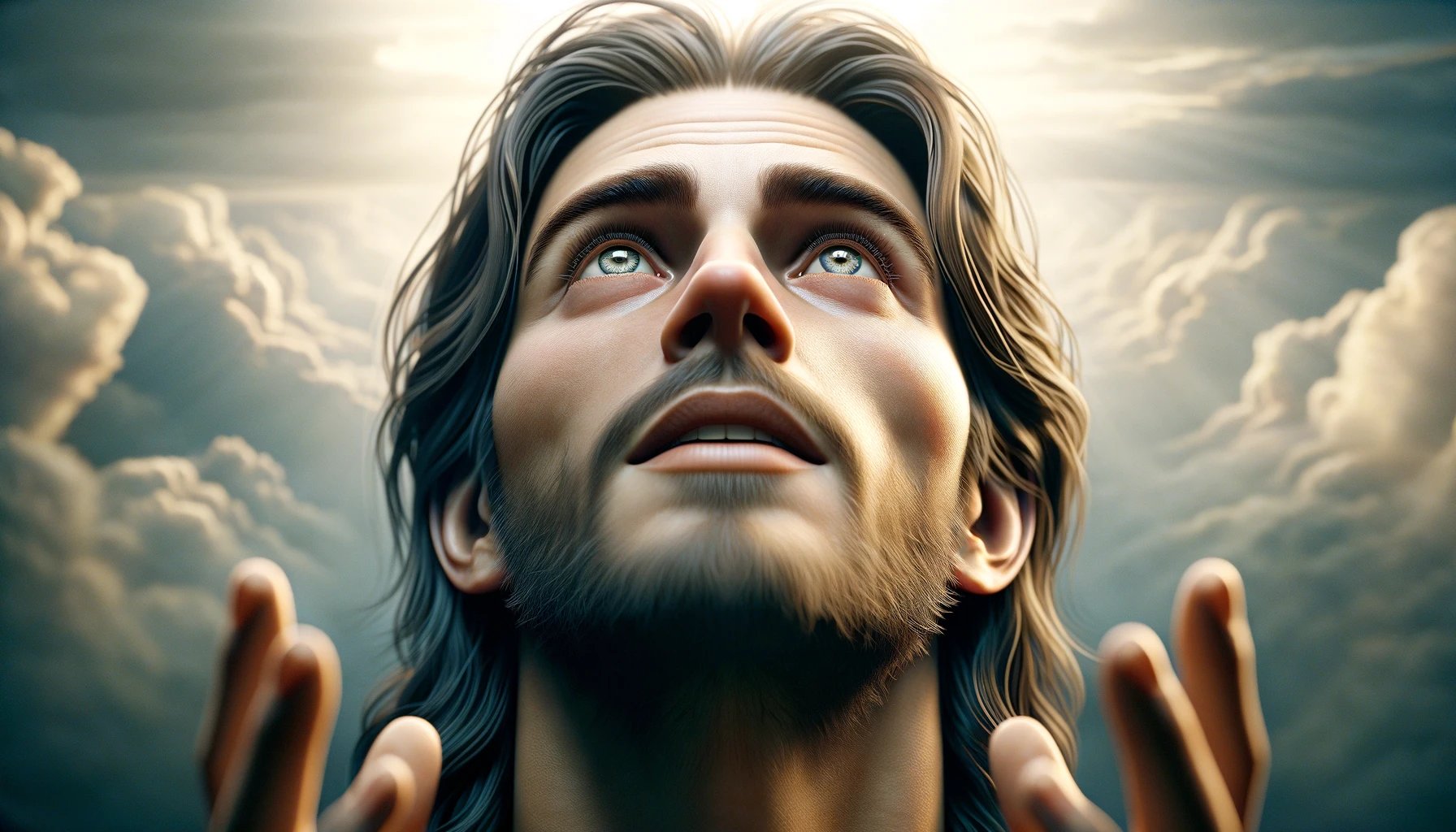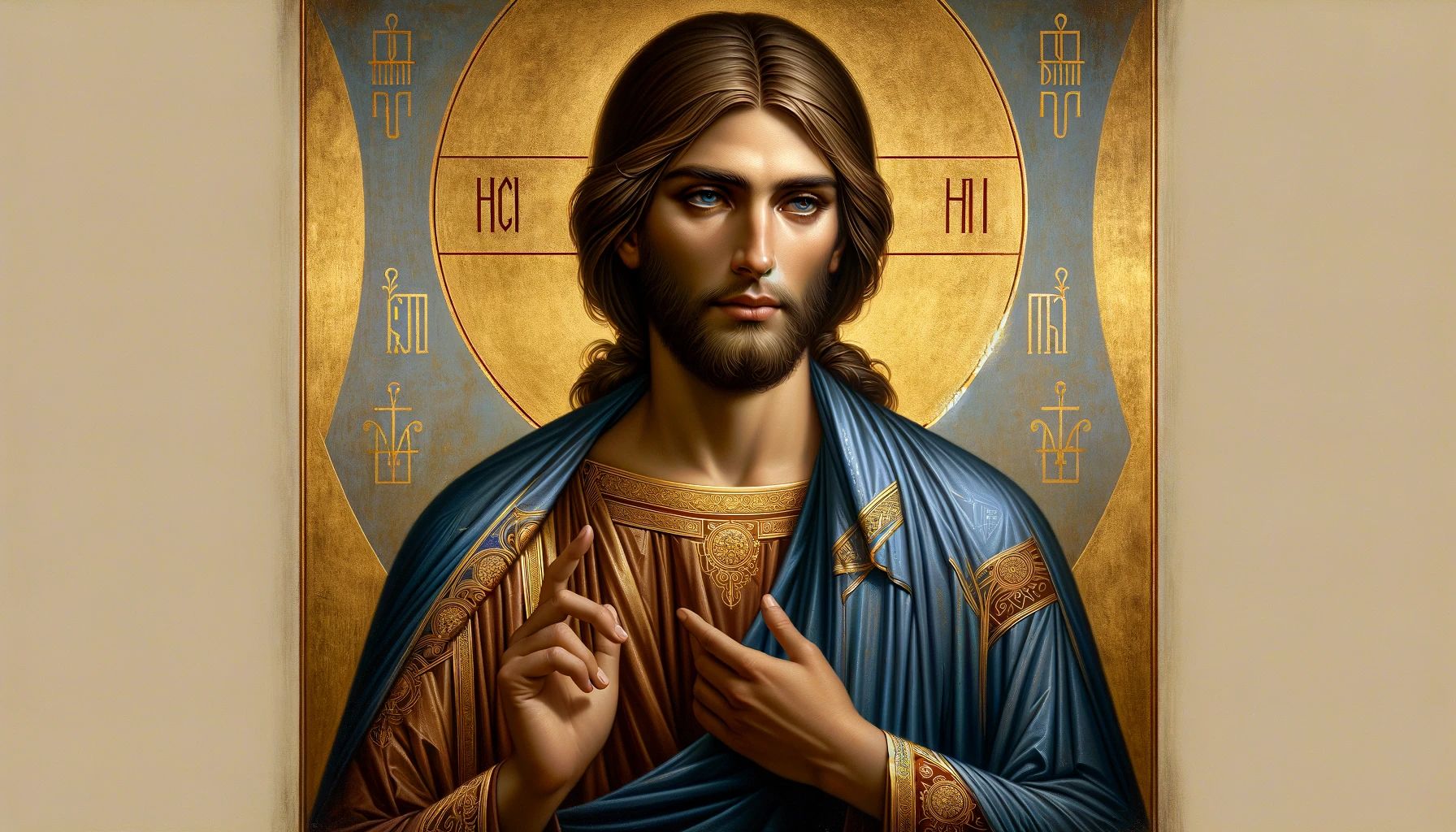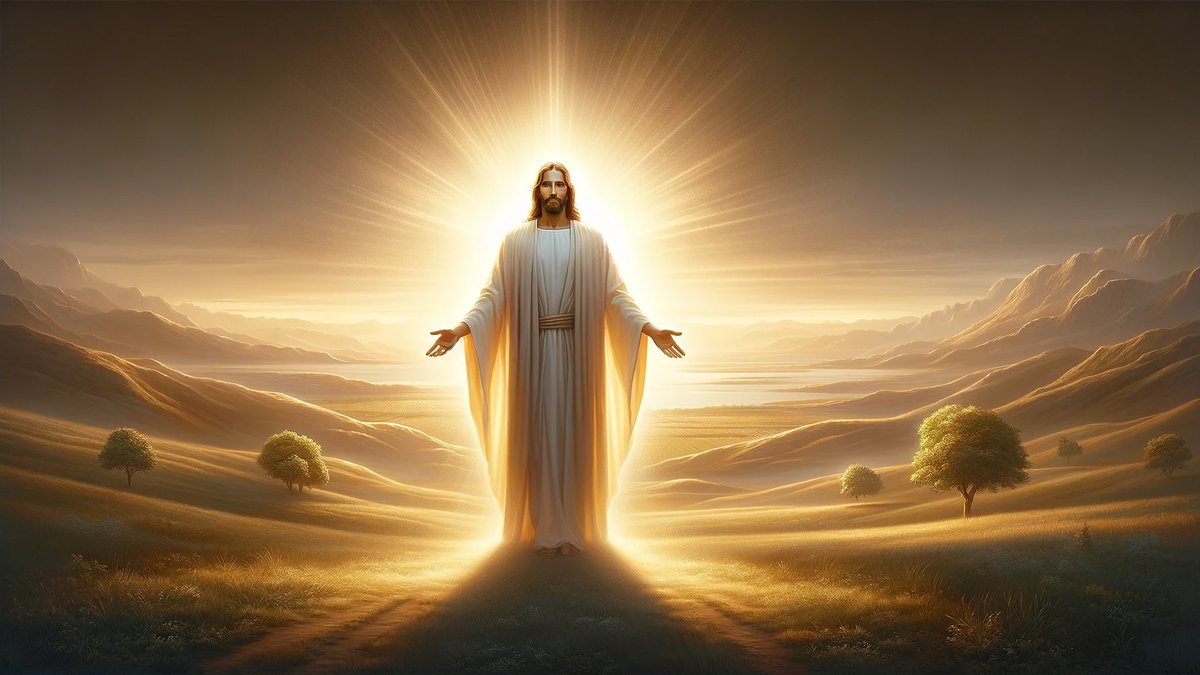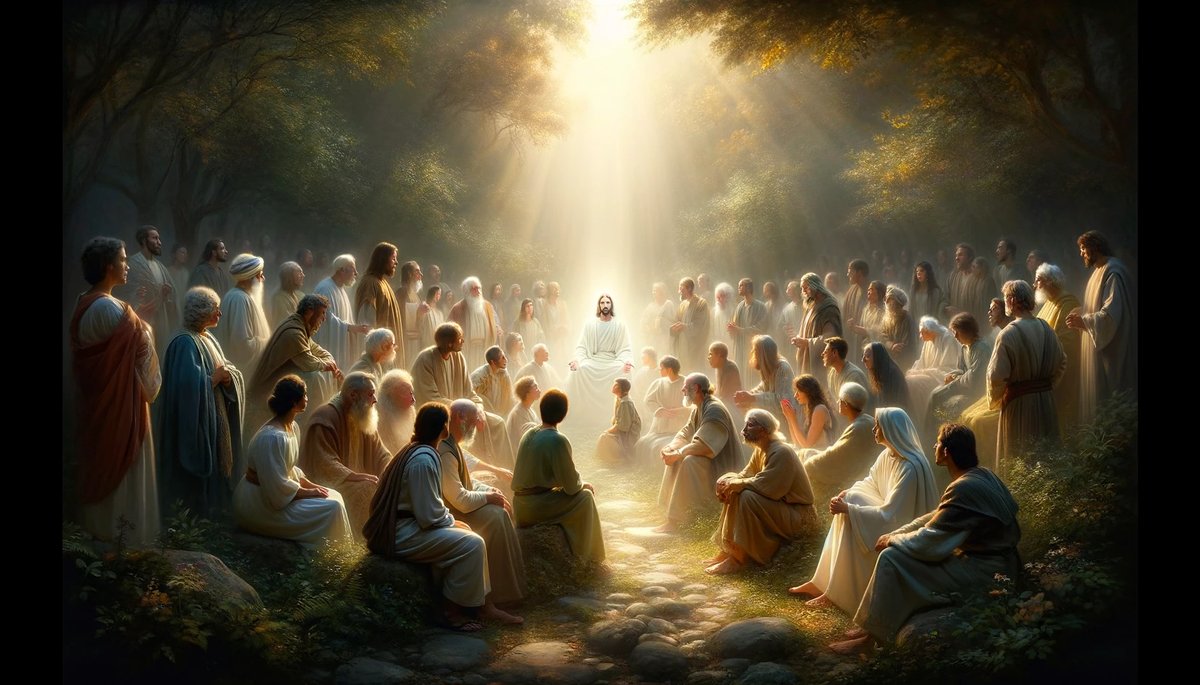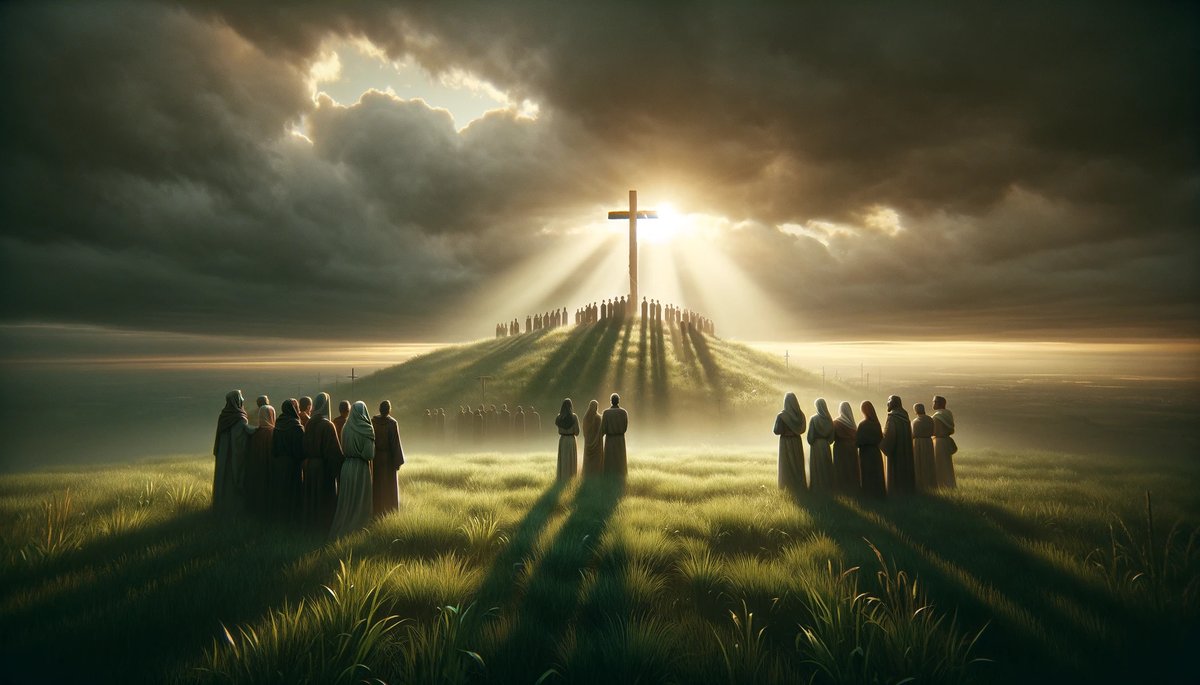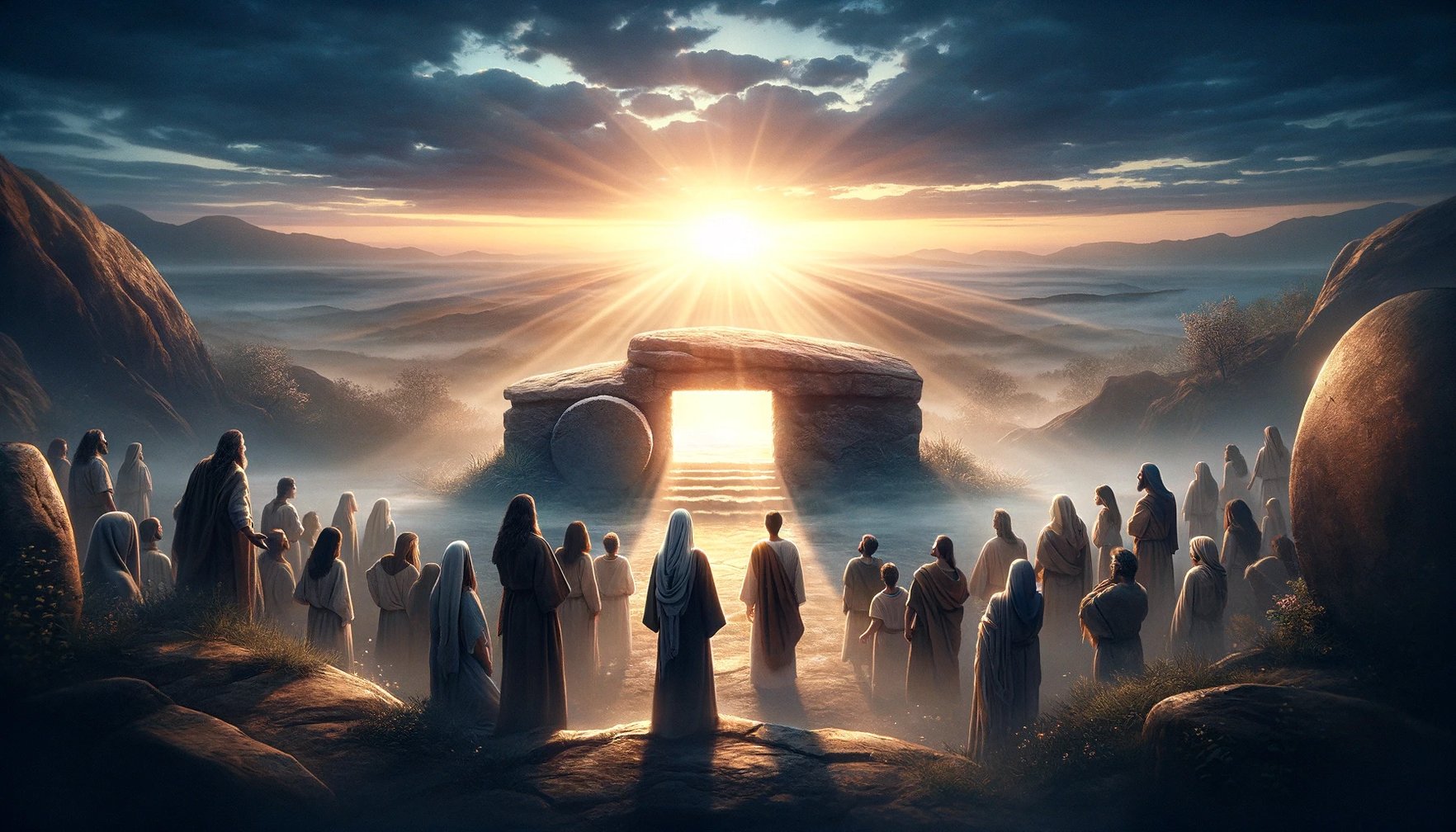Home>Christian Videos>Bible Stories>What Does The Deity Of Jesus Christ Mean
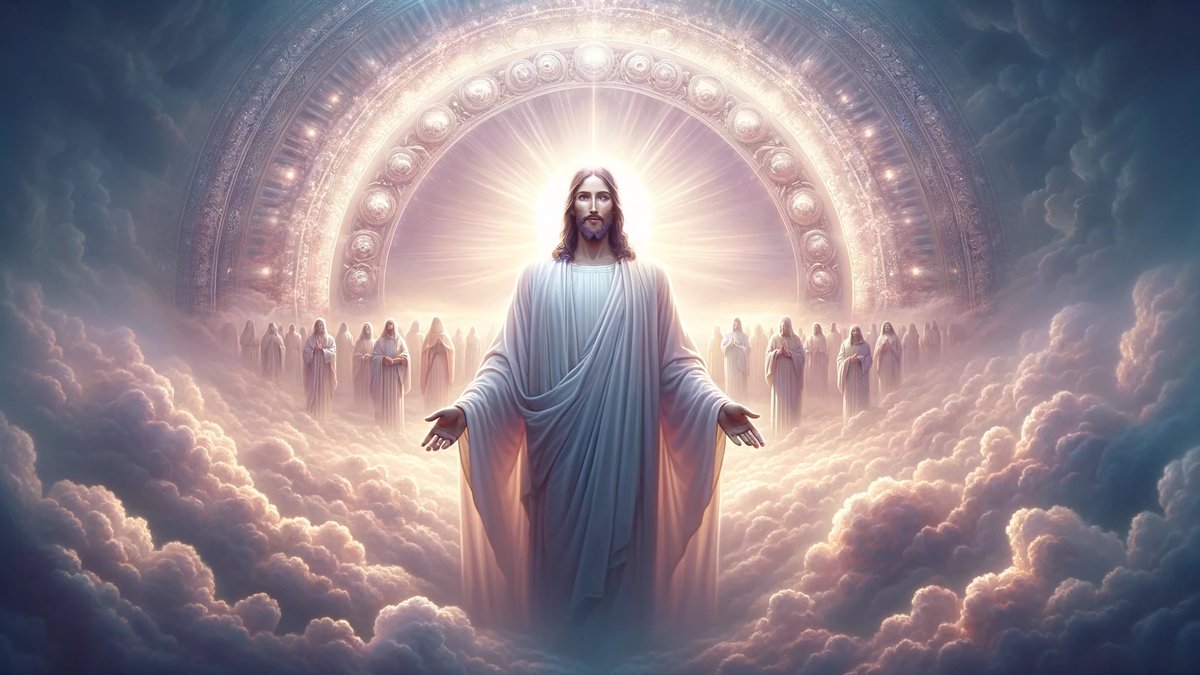

Bible Stories
What Does The Deity Of Jesus Christ Mean
Published: March 2, 2024
Ericka Andersen, an editor at Christian.net, expertly merges digital strategy with content creation, focusing on faith and societal issues. Her communication skills enhance the platform's engaging narratives, fostering meaningful dialogue on belief's impact on society.
Discover the significance of the deity of Jesus Christ in the Bible stories and its impact on Christian beliefs. Explore the divine nature of Jesus and its implications.
(Many of the links in this article redirect to a specific reviewed product. Your purchase of these products through affiliate links helps to generate commission for Christian.net, at no extra cost. Learn more)
Table of Contents
Understanding the Nature of Jesus Christ
The deity of Jesus Christ refers to the belief that Jesus is not just a prophet or a moral teacher, but that he is actually divine, the Son of God. This concept is central to Christian theology and has been a topic of debate and discussion for centuries. Understanding the nature of Jesus Christ as the Son of God is fundamental to the Christian faith and has profound implications for the beliefs and practices of Christians around the world.
-
Incarnation: The deity of Jesus Christ is closely tied to the concept of the Incarnation, which is the belief that God took on human flesh in the person of Jesus. This means that Jesus is both fully divine and fully human, a concept that is difficult for the human mind to fully comprehend. The Incarnation is a central doctrine in Christianity and is essential for understanding the nature of Jesus Christ.
-
Savior and Redeemer: Belief in the deity of Jesus Christ also means accepting him as the Savior and Redeemer of humanity. According to Christian belief, Jesus' sacrificial death on the cross atoned for the sins of humanity, offering the gift of salvation to all who believe in him. This aspect of Jesus' nature as the divine Savior is foundational to Christian faith and shapes the way Christians understand their relationship with God.
-
Role in the Trinity: The deity of Jesus Christ is intricately connected to the doctrine of the Trinity, which teaches that God exists as three persons – the Father, the Son (Jesus Christ), and the Holy Spirit – in one divine essence. This means that Jesus is not a separate, lesser deity, but is fully God in union with the Father and the Holy Spirit. Understanding Jesus' role in the Trinity is essential for comprehending his divine nature.
-
Eternal Existence: Another aspect of understanding the nature of Jesus Christ is recognizing his eternal existence. According to Christian belief, Jesus existed before his earthly incarnation and will continue to exist for all eternity. This eternal aspect of Jesus' nature as the divine Son of God is a foundational tenet of Christian theology and shapes the way Christians view the nature of God.
-
Authority and Power: Belief in the deity of Jesus Christ also entails acknowledging his authority and power as the divine Son of God. In Christian theology, Jesus is not just a moral teacher or exemplary figure, but is the ultimate authority and possesses divine power. This understanding of Jesus' nature has significant implications for how Christians approach prayer, worship, and their relationship with God.
Understanding the nature of Jesus Christ as the Son of God is a central aspect of Christian faith and has profound implications for the beliefs and practices of Christians. The deity of Jesus Christ shapes the way Christians understand salvation, the nature of God, and their own relationship with God, making it a foundational doctrine in Christian theology.
Read more: What Does It Mean To Abide In Jesus Christ
Exploring the Biblical Evidence for the Deity of Jesus
-
Divine Titles and Attributes: The Bible attributes divine titles and characteristics to Jesus Christ. In the New Testament, Jesus is referred to as the "Son of God," a title that signifies his divine nature. Additionally, Jesus is described as having the power to forgive sins, a prerogative that was traditionally understood as belonging to God alone. These divine titles and attributes ascribed to Jesus in the Bible provide compelling evidence for his deity.
-
Claims Made by Jesus: Throughout the Gospels, Jesus makes explicit claims about his divine nature. He refers to himself as the "I AM," a statement that echoes the divine name of God revealed to Moses in the Old Testament. Jesus also asserts his unity with the Father, stating, "I and the Father are one." These claims made by Jesus himself serve as significant biblical evidence for his deity.
-
Worship and Adoration: The New Testament records instances where Jesus is worshipped and adored. In several passages, individuals bow down before Jesus and offer him worship. This act of worship is reserved for God alone, and its inclusion in the biblical accounts underscores the recognition of Jesus' divine status by those who encountered him.
-
Role in Creation and Redemption: The Bible presents Jesus as playing a central role in both the creation and redemption of the world. In the Gospel of John, Jesus is described as the Word through whom all things were made, emphasizing his preexistence and active involvement in the creation of the universe. Furthermore, the New Testament portrays Jesus as the agent of redemption, whose sacrificial death on the cross provides salvation for humanity, a task that aligns with the divine purpose.
-
Fulfillment of Messianic Prophecies: The Old Testament contains numerous prophecies about the coming Messiah, many of which find their fulfillment in the life, ministry, and identity of Jesus Christ. These prophecies, such as those found in Isaiah 9:6 and Micah 5:2, depict the Messiah as possessing divine attributes and fulfilling divine roles. The alignment of Jesus' life with these Messianic prophecies serves as compelling biblical evidence for his deity.
Exploring the biblical evidence for the deity of Jesus reveals a consistent and compelling portrayal of Jesus Christ as divine within the pages of the New Testament. The combination of divine titles, Jesus' own claims, worship directed towards him, his role in creation and redemption, and the fulfillment of Messianic prophecies collectively attest to the biblical affirmation of Jesus' deity.
Historical Perspectives on the Deity of Jesus
-
Early Christian Church: In the early centuries of Christianity, the belief in the deity of Jesus Christ was a central point of contention and discussion. The Council of Nicaea in 325 AD was a significant event in the history of the church, as it addressed the nature of Jesus Christ in relation to God the Father. The resulting Nicene Creed affirmed Jesus as "God of God, Light of Light, very God of very God, begotten, not made, being of one substance with the Father." This declaration solidified the belief in the deity of Jesus as a foundational doctrine of the Christian faith.
-
Arian Controversy: Following the Council of Nicaea, the church faced the Arian controversy, which centered on the teachings of Arius, a presbyter in Alexandria. Arius propagated the view that Jesus, as the Son of God, was a created being and not co-eternal with the Father. This perspective challenged the traditional understanding of Jesus' divine nature and sparked intense theological debates within the early church.
-
Chalcedonian Definition: The Council of Chalcedon in 451 AD further contributed to the historical perspectives on the deity of Jesus. The council affirmed the dual nature of Jesus Christ, declaring that he is "truly God and truly man." This formulation sought to address the complexities of Jesus' divine and human natures, emphasizing that he is not a mixture of the two but is fully divine and fully human without confusion or division.
-
Medieval Theological Reflections: Throughout the medieval period, theologians such as Thomas Aquinas and Anselm of Canterbury delved into the intricacies of Christ's nature, seeking to articulate the mystery of the Incarnation and its implications for the deity of Jesus. Their writings and reflections contributed to the ongoing historical dialogue surrounding the nature of Jesus Christ within the context of Christian theology.
-
Reformation and Post-Reformation Era: The Protestant Reformation and subsequent developments in Christian thought brought renewed emphasis on the authority of Scripture and the foundational doctrines of the faith. Reformers such as Martin Luther and John Calvin affirmed the deity of Jesus Christ as a non-negotiable tenet of Christian belief, emphasizing the biblical evidence for his divine nature and the significance of this doctrine for salvation and the Christian life.
-
Modern Theological Discourse: In contemporary theological discourse, scholars continue to engage with historical perspectives on the deity of Jesus, drawing from the rich tradition of Christian thought while also addressing new questions and challenges. The ongoing exploration of historical perspectives contributes to a deeper understanding of the significance of Jesus' deity within the broader scope of Christian history and theology.
The historical perspectives on the deity of Jesus reflect the enduring significance of this doctrine within the development of Christian thought and the theological reflections of various eras. The discussions, debates, and formulations surrounding the nature of Jesus Christ have shaped the identity of the Christian faith and continue to inform contemporary understandings of the person of Jesus within the context of history and theology.
Implications of the Deity of Jesus for Christian Beliefs
-
Salvation and Redemption: The deity of Jesus Christ holds profound implications for Christian beliefs, particularly in the realm of salvation and redemption. As the divine Son of God, Jesus' sacrificial death on the cross is viewed as the ultimate act of atonement, providing the means for humanity's reconciliation with God. This understanding shapes the Christian belief in the efficacy of Jesus' redemptive work, offering the assurance of forgiveness and eternal life to those who place their faith in him.
-
Authority and Lordship: Belief in the deity of Jesus Christ establishes his authority and lordship in the lives of Christians. As the divine Son of God, Jesus is acknowledged as the ultimate source of truth, the sovereign ruler over all creation, and the rightful object of worship. This recognition of Jesus' authority shapes Christian beliefs about obedience to his teachings, submission to his will, and the acknowledgment of his divine sovereignty over every aspect of life.
-
Identity and Purpose: The deity of Jesus Christ informs Christian beliefs about the identity and purpose of humanity. In Christian theology, the recognition of Jesus as the divine Son of God underscores the inherent value and dignity of every individual, as they are created in the image of God. Furthermore, the belief in Jesus' deity provides a framework for understanding the purpose of human existence, emphasizing the call to live in relationship with God and to reflect the character of Christ in the world.
-
Hope and Eternal Life: The deity of Jesus Christ offers profound hope and assurance to Christian beliefs regarding eternal life. Through his resurrection and exaltation, Jesus demonstrates his victory over sin and death, offering the promise of resurrection and the hope of eternal fellowship with God. This belief in Jesus' deity shapes the Christian perspective on the ultimate destiny of believers, instilling confidence in the fulfillment of God's redemptive plan and the anticipation of a future glorified existence.
-
Mission and Witness: The recognition of Jesus' deity has significant implications for Christian beliefs about mission and witness. As the divine Son of God, Jesus commissions his followers to proclaim the gospel, make disciples of all nations, and bear witness to his redemptive work. This understanding of Jesus' deity fuels the Christian mission, inspiring believers to share the message of salvation, embody the love of Christ, and invite others into a transformative relationship with the living God.
-
Unity and Community: The deity of Jesus Christ fosters a sense of unity and community among believers. As the divine Son of God, Jesus serves as the unifying center of the Christian faith, transcending cultural, ethnic, and social barriers. This belief in Jesus' deity shapes Christian beliefs about the interconnectedness of the body of Christ, emphasizing the call to love one another, serve in humility, and pursue the common mission of advancing God's kingdom on earth.
The implications of the deity of Jesus for Christian beliefs permeate every aspect of the faith, shaping the foundational convictions, practices, and aspirations of believers as they seek to live out their devotion to the divine Son of God.
Theological Debates Surrounding the Deity of Jesus
The theological debates surrounding the deity of Jesus have been a focal point of discussion and disagreement within Christian theology. These debates have given rise to various perspectives and interpretations, reflecting the complexity and depth of the doctrinal considerations related to the nature of Jesus Christ.
-
Trinitarian Formulations: One significant area of theological debate revolves around the precise understanding of the Trinity in relation to the deity of Jesus. Different theological traditions and perspectives have grappled with articulating the nature of the Father, Son, and Holy Spirit within the Godhead, seeking to maintain the unity of the three persons while affirming the distinctiveness of each. These discussions have led to debates concerning the eternal relationship between the Father and the Son, the procession of the Holy Spirit, and the implications of these relationships for the deity of Jesus.
-
Incarnation and Hypostatic Union: The theological debates surrounding the deity of Jesus also encompass the intricacies of the Incarnation and the Hypostatic Union. Questions regarding how the divine and human natures of Jesus intersect, the manner in which the two natures coexist in the person of Christ, and the implications of this union for his identity as the Son of God have been subjects of intense theological scrutiny. The debates have centered on preserving the integrity of both the divine and human aspects of Jesus' nature without falling into theological error or imbalance.
-
Historical Christological Controversies: Throughout the history of Christianity, various Christological controversies have emerged, giving rise to theological debates about the deity of Jesus. The Arian controversy, Nestorianism, Monophysitism, and other doctrinal disputes have revolved around the nature of Jesus Christ, his relationship to the Father, and the implications of his divine status for the salvation and reconciliation of humanity. These debates have prompted careful examination of biblical, philosophical, and theological sources to articulate a coherent understanding of Jesus' deity within the context of historical challenges and disagreements.
-
Contemporary Interpretations and Challenges: In contemporary theological discourse, the debates surrounding the deity of Jesus continue to evolve in response to new interpretative frameworks and challenges. The impact of modern biblical scholarship, cultural shifts, interfaith dialogue, and philosophical inquiries has prompted ongoing discussions about the nature of Jesus Christ and his divine identity. The theological debates in the present context encompass a wide range of perspectives, including conservative, liberal, and moderate interpretations, each seeking to engage with the complexities of the deity of Jesus within the contemporary intellectual and cultural landscape.
-
Ecumenical Dialogue and Reconciliation Efforts: Amidst the theological debates surrounding the deity of Jesus, efforts towards ecumenical dialogue and reconciliation have sought to bridge theological differences and foster greater understanding and unity within the Christian community. These initiatives aim to address historical divisions, doctrinal disagreements, and interpretative tensions related to the nature of Jesus Christ, fostering constructive dialogue and mutual respect among diverse theological traditions.
The theological debates surrounding the deity of Jesus reflect the profound significance of this doctrinal consideration within Christian theology, encompassing a rich tapestry of historical, philosophical, and theological reflections that continue to shape the understanding of Jesus' divine nature within the broader context of Christian faith and practice.

